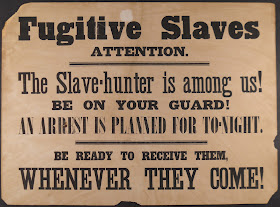 People frequently ask us how we know everything in our collections is real. We are quite certain about the authenticity of most of the things in our collection, but occasionally we are sure the other way--we know something is a fake, and we are proud to proclaim it.
People frequently ask us how we know everything in our collections is real. We are quite certain about the authenticity of most of the things in our collection, but occasionally we are sure the other way--we know something is a fake, and we are proud to proclaim it.One such example is our great collection of Thomas Wise forgeries donated by George Singer '50. Wise was a bibliographer, book collector and sometimes forger. He would insert very rare items (some of which never existed) into his bibliographies of English Romantics, then print some up, "discover" them and sell them as extraordinary rarities. Wise's forgeries tend to be fairly plain, in the style of a nineteenth-century English book.
More spectacularly, we have one piece by "The Spanish Forger." No one knows exactly who he was, but his body of work has been traced and well documented by curators at the Morgan Library and Museum. The Spanish Forger, who was active in the late-nineteenth century and early-twentieth century, would take old manuscript leaves lacking illuminations, which could be purchased quite cheaply, then illuminate them in a convincing style. Back on the market, they turned a tidy profit.
Ask for MS 002088 to see our loveliest fake (donated by Mark Lansburgh '49).

